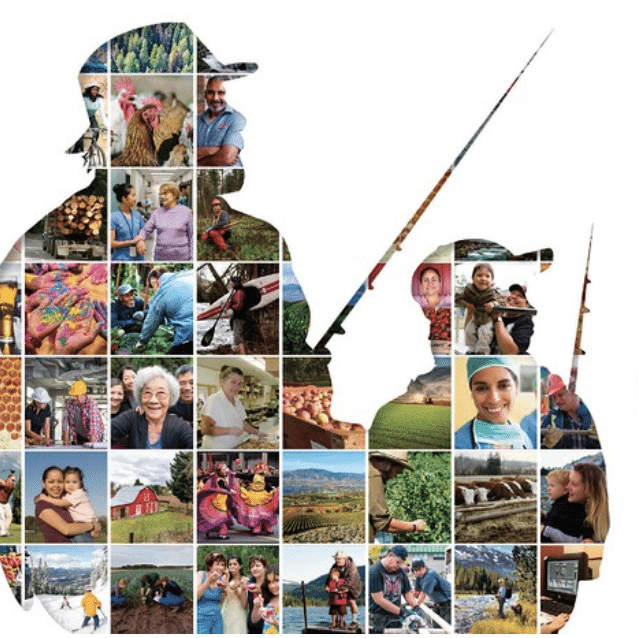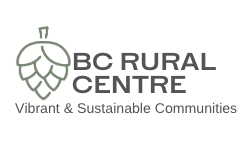
StrongerBC for everyone – Investing in Rural Communities
The B.C. government has released StrongerBC: Good Lives in Strong Communities, a new vision that outlines investments to help build a brighter future for rural communities and the people who call them home.
“If you’re looking for people to help cut through the noise and get a job done, my bet will always be on the people who call rural B.C. home,” said Premier David Eby. “That’s why I’m proud to have so many rural British Columbians on our government team. Together, working with community members, this vision for rural B.C. will connect people to the opportunities and services that will help them build a good life in the communities they love.”
The vision focuses on concrete actions to make life better for rural British Columbians – including delivering high-speed internet to every community, helping goods and people move, and bringing more rural expertise and perspectives to government.
“Our vision is deeply rooted in respect for place. The challenges faced by rural places are different than those in urban centres, but all B.C. communities deserve the opportunity to thrive. Unique challenges, coupled with unique local solutions, require flexible support from the province,” said Roly Russell, Parliamentary Secretary for Rural Development. “These investments are a key part of our larger strategy to building strong and diverse rural economies because we know that when rural communities thrive, it puts us all on the path to a brighter future.”
Another key focus of the new vision is enhancing people’s access to quality health care when they need it. An initial investment of $20 million to enhance medical travel support provided by the Canadian Cancer Society and Hope Air will support more people in rural and remote areas who need to travel for cancer care. Through this investment, more people will be able to travel and get cancer treatment in one of the six BC Cancer Centres or at one of the 41 Community Oncology Network sites throughout B.C.
“The size and landscape of the province can make it challenging to deliver health care in rural communities,” said Jennifer Rice, Parliamentary Secretary for Rural Health. “Some medical procedures are best delivered by specialists at dedicated medical centres that provide specialized care far from many communities. That’s why we’re going to help cover travel-related costs – including transportation, accommodation and meals – during a patient’s cancer treatment.”
Reconciliation with Indigenous Peoples is a thread that runs throughout the new vision. Many of the actions and investments support the Declaration Act Action Plan, a cross-government action plan that guides the Province’s work to implement the UN Declaration on the Rights of Indigenous Peoples in B.C.
Read the report here > StrongerBC Rural Initiative 2023
Comments from the rural community leaders, local government and residents including our own BC Rural Centre Chair, Grace McGregor, director, Electoral Area C/Christina Lake, Regional District of Kootenay Boundary –
“I am excited that the provincial government understands and recognizes the need for a rural strategy. Making decisions using a rural lens will strengthen our partnerships as we move forward together.”
Jennifer Wetmore, General Manager, Community Futures Boundary –
“Those of us who live in rural communities in B.C. choose to do so because we love the way of life. Growing our food, knowing our neighbours and really being there for each other in difficult times matter to us, and are part of how we define community. We appreciate a government that recognizes the unique makeup of rural B.C., seeks our input, and respects and supports our practical, grassroots approach to building resilient healthy communities. By working with us to identify the tools and supports we need to build and grow our communities how we want, rural B.C. is far better positioned to succeed in the long term.”
Jude Kornelsen, co-director, Centre for Rural Health Research, and associate professor, department of family practice, University of British Columbia –
“Good Lives in Strong Communities lays out a sensible plan for addressing some of the sustainability gaps experienced by rural communities, within a larger partnership framework that recognizes the importance of the lived and living experience of rural residents. From an evidence-based perspective, strengthening local primary care is foundational to supporting healthy communities. When care needs exceed what can be provided locally, subsidized travel and expenses, such as those committed to patients seeking cancer treatment, is essential for ensuring appropriate access to health care for those who live in rural and remote settings. Likewise, recognition of social determinants of health through attention to key enablers, such as affordable housing and safe communities, ensures a wraparound solution to improve rural health. These initiatives are the building blocks for stronger, more vibrant rural communities.”
